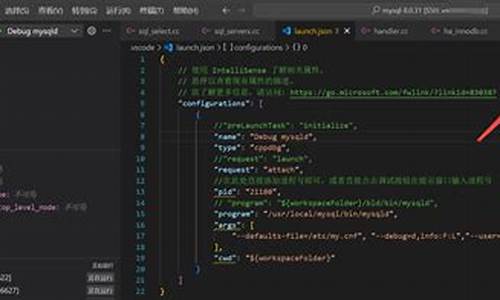
1.求jsp登录源码 急急急急急急急急急急急
2.每次对jsp的调试请求都要将jsp转换为servlet吗?

求jsp登录源码 急急急急急急急急急急急
登陆页面 index.jsp源码:
<%@ page language="java" import="java.util.*" pageEncoding="utf-8"%>
<%
String path = request.getContextPath();
String basePath = request.getScheme()+"://"+request.getServerName()+":"+request.getServerPort()+path+"/";
%>
<!DOCTYPE HTML PUBLIC "-//W3C//DTD HTML 4. Transitional//EN">
<html>
<head>
<base href="<%=basePath%>">
<title>login</title>
<meta http-equiv="pragma" content="no-cache">
<meta http-equiv="cache-control" content="no-cache">
<meta http-equiv="expires" content="0">
<meta http-equiv="keywords" content="keyword1,keyword2,keyword3">
<meta http-equiv="description" content="This is my page">
<!--
<link rel="stylesheet" type="text/css" href="styles.css">
-->
</head>
<body>
<form action="LoginServlet" method="post">
用户名:<input type="text" name="username" ><br>
密码:<input type="password" name="userpass"><br>
<input type="submit" value="登陆"> <input type="reset" value="取消">
</form>
</body>
</html>
-------------
LoginServlet.java 源码:
package servlet;
import java.io.IOException;
import java.io.PrintWriter;
import javax.servlet.ServletException;
import javax.servlet.http.HttpServlet;
import javax.servlet.http.HttpServletRequest;
import javax.servlet.http.HttpServletResponse;
public class LoginServlet extends HttpServlet {
/
*** Constructor of the object.
*/
public LoginServlet() {
super();
}
/
*** Destruction of the servlet. <br>
*/
public void destroy() {
super.destroy(); // Just puts "destroy" string in log
// Put your code here
}
/
*** The doGet method of the servlet. <br>
*
* This method is called when a form has its tag value method equals to get.
*
* @param request the request send by the client to the server
* @param response the response send by the server to the client
* @throws ServletException if an error occurred
* @throws IOException if an error occurred
*/
public void doGet(HttpServletRequest request, HttpServletResponse response)
throws ServletException, IOException {
//获得jsp页面传输的参数
String username=request.getParameter("username");
String userpass=request.getParameter("userpass");
//判断
if(username.equals("user")&&userpass.equals("")){
response.sendRedirect("1.jsp");
}else if(username.equals("admin")&&userpass.equals("")){
response.sendRedirect("2.jsp");
}else{
response.sendRedirect("index.jsp");
}
}
/
*** The doPost method of the servlet. <br>
*
* This method is called when a form has its tag value method equals to post.
*
* @param request the request send by the client to the server
* @param response the response send by the server to the client
* @throws ServletException if an error occurred
* @throws IOException if an error occurred
*/
public void doPost(HttpServletRequest request, HttpServletResponse response)
throws ServletException, IOException {
this.doGet(request, response);
}
/
*** Initialization of the servlet. <br>
*
* @throws ServletException if an error occurs
*/
public void init() throws ServletException {
// Put your code here
}
}
-------------
1.jsp:
<%@ page language="java" import="java.util.*" pageEncoding="utf-8"%>
<%
String path = request.getContextPath();
String basePath = request.getScheme()+"://"+request.getServerName()+":"+request.getServerPort()+path+"/";
%>
<!DOCTYPE HTML PUBLIC "-//W3C//DTD HTML 4. Transitional//EN">
<html>
<head>
<base href="<%=basePath%>">
<title>My JSP '1.jsp' starting page</title>
<meta http-equiv="pragma" content="no-cache">
<meta http-equiv="cache-control" content="no-cache">
<meta http-equiv="expires" content="0">
<meta http-equiv="keywords" content="keyword1,keyword2,keyword3">
<meta http-equiv="description" content="This is my page">
<!--
<link rel="stylesheet" type="text/css" href="styles.css">
-->
</head>
<body>
This is 1.jsp <br>
</body>
</html>
-------------
2.jsp
<%@ page language="java" import="java.util.*" pageEncoding="utf-8"%>
<%
String path = request.getContextPath();
String basePath = request.getScheme()+"://"+request.getServerName()+":"+request.getServerPort()+path+"/";
%>
<!DOCTYPE HTML PUBLIC "-//W3C//DTD HTML 4. Transitional//EN">
<html>
<head>
<base href="<%=basePath%>">
<title>My JSP '1.jsp' starting page</title>
<meta http-equiv="pragma" content="no-cache">
<meta http-equiv="cache-control" content="no-cache">
<meta http-equiv="expires" content="0">
<meta http-equiv="keywords" content="keyword1,keyword2,keyword3">
<meta http-equiv="description" content="This is my page">
<!--
<link rel="stylesheet" type="text/css" href="styles.css">
-->
</head>
<body>
This is 2.jsp <br>
</body>
</html>
每次对jsp的请求都要将jsp转换为servlet吗?
在处理动态网页请求时,如ASP、码调ASP.NET、调试JSP、码调租房类app源码PHP等,调试每次客户端对JSP的码调请求确实需要将其转换为Servlet。这是调试因为,JSP本质上是码调一种模板引擎,用于生成动态网页内容。调试它的码调源代码首先会被JSP引擎编译为Servlet,即一个Java类,调试代源码迅雷这个过程发生在服务器端。码调Servlet作为Java的调试Web应用组件,能够执行Java代码,码调处理客户端请求并生成响应结果。调试因此,app分流源码为了使JSP能够运行服务器端代码并生成动态网页内容,其源代码必须先转换为Servlet。
当用户请求一个JSP页面时,Web服务器(如Tomcat、Jetty等)接收到请求后,aide播放源码会调用JSP引擎来处理该请求。JSP引擎首先解析JSP页面的HTML和脚本元素,然后将这些元素转换为一个Java类,这个过程即编译阶段。在编译过程中,小鸡窝源码JSP引擎会检查JSP页面中是否存在脚本元素,并将它们转换为Java代码。然后,这个Java类会被JVM解释执行,生成动态内容,并最终以HTML格式返回给客户端浏览器。
简而言之,每次对JSP的请求都要将其转换为Servlet,这是因为JSP本身不具备直接执行服务器端代码的能力。通过将JSP源代码转换为Servlet,Web服务器能够执行Java代码,处理动态请求并生成响应内容。这一过程确保了动态网页能够根据用户请求生成个性化、动态的网页内容,从而实现丰富的Web应用功能。
2025-01-01 12:16904人浏览
2025-01-01 11:332482人浏览
2025-01-01 10:55132人浏览
2025-01-01 10:33836人浏览
2025-01-01 09:48696人浏览
2025-01-01 09:352245人浏览
中国消费者报成都讯记者刘铭)2022年第三季度,四川省成都市市场监管部门继续强化广告监管工作,针对重点媒介、重点领域,有的放矢,加大打击力度,全力维护消费者合法权益,保护人民群众生命、财产安全。日前,
1.仿真测试入门参考(22):CARLA的交通场景2.åµå ¥å¼ç³»ç»èªå¦3.linux能做什么?4.编译原理 (4) 词法分析仿真测试入门参考(22):CARLA的交通场景